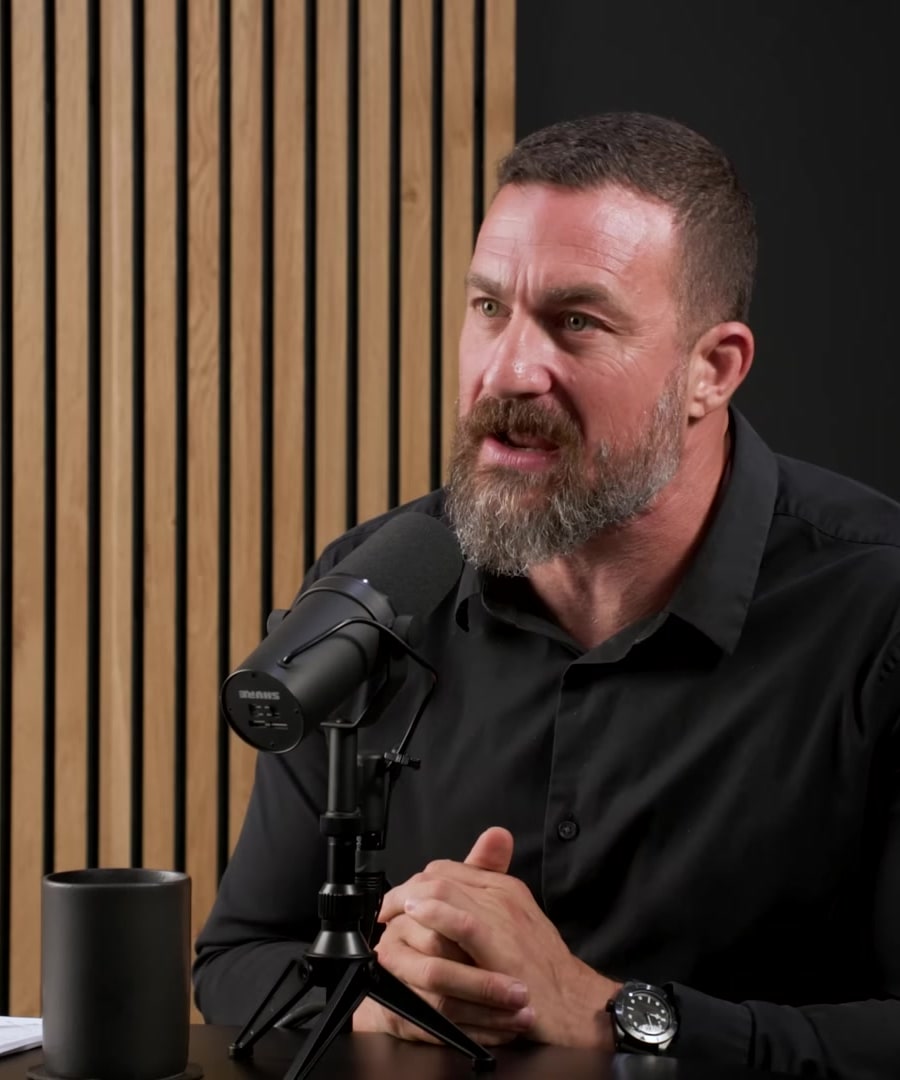attention
Sources:
has shared insights on various aspects related to attention in the . Here are some key points with respective citations:
- Building Social Connections: Eye contact during conversation is important, but it doesn't have to be constant. Attention naturally ramps up and breaks in healthy connected conversations, which aids in building social connections and increasing happiness 1.
- Boosting Attention: Dopamine and norepinephrine regulate attention, with dopamine reducing noise, such as distractions, and norepinephrine boosting signals for focused attention, enhancing cognitive function 2.
- Heightened Focus in ADHD: ADHD is often associated with an inability to focus, which is not accurate; individuals with ADHD can focus intently on tasks they're interested in. Dopamine plays a key role in narrowing the attentional 'spotlight' during motivated and rewarding pursuits 3.
- Improving Attention: Attention and focus can be improved through practice. Engaging the cholinergic system through focused visual attention is one effective method. It's also important to manage the distractions from one's devices 4.
- Attention Switching: Focus can be shifted deliberately between internal and external stimuli to improve cognitive control. Techniques for switching attention can help with the management of negative experiences 5 6.
- Attentional Spotlights: Attention is likened to having two spotlights, which can be directed to different tasks, suggesting multitasking is possible. The control of attention is essential for neuroplasticity and is influenced by rest and chemicals 7.
- Boosting Focus and Attention: Challenges with focus and attention in daily life can be potentially exacerbated by the overuse of smartphones and social media. Working memory tasks require the ability to ignore distractions and switch between tasks, with the basal ganglia and dopamine playing important roles 8.
These are just some excerpts from the more extensive discussions on attention and related topics available in the .
RELATED QUESTIONSList clips similar to "Building Social Connections"
Sources:
Here are some clips similar to "Building Social Connections" where the topics of social connection, happiness, and relationships are discussed by and guests on the :
- Building Connection: U.S. Surgeon General Dr. Vivek Murthy discusses the importance of building connections through kind acts and shared values [chunk_179015].
- The Power of Social Connection: Highlights the role of flexibility in strengthening social connections and their positive effects on well-being [chunk_51121].
- The Power of Faces: Explains the importance of faces in registering emotions and forming social bonds for increasing happiness [chunk_49077].
- Technology and Health: Mark Zuckerberg on how technology, when used to form meaningful connections, can have a positive impact on health [chunk_251653].
- Quality Social Connection: Discusses varying types and depths of social connections and their impact on happiness [chunk_49075].
- Social Connection Insights: Andrew Huberman and Dr. Lisa Feldman Barrett talk about the impact of social interactions on mental health and energy levels [chunk_363015].
- Social Connection Insights: A detailed look at how presence, eye contact, and physical contact contribute to social connection [chunk_49078].
These clips explore different facets of social connections, from the neurological and emotional impacts to practical advice for improving relationships and well-being.
RELATED QUESTIONS- Building Connection: U.S. Surgeon General Dr. Vivek Murthy discusses the importance of building connections through kind acts and shared values [
stop forgetting things
Sources:
Here are several clips with discussions on topics relevant to memory improvement:
-
Enhancing Memory: Importance of emotional saliency, neurochemicals like adrenaline, and various behavioral protocols to enhance memory 1.
-
Enhancing Memory with Caffeine: Using caffeine post-learning to enhance memory retention, and combining it with cold exposure or exercise 2.
-
Exercise and Memory: Cardiovascular exercise promotes the creation of new neurons in the hippocampal dentate gyrus, vital for memory formation 3.
-
Boosting Working Memory: Supplement L-tyrosine to increase working memory in multitasking environments and discussing minimal effective dosages 4.
-
Cognitive Enhancers Discussion: The use of pharmacology and zero-cost protocols to increase catecholamines and improve working memory, including addressing age-related cognitive decline 5.
-
Boosting Working Memory: Protocols to improve working memory by changing dopamine levels using non-sleep deep rest protocols 6.
-
Exercise and Memory: The impact of regular exercise on learning and delaying memory decline, suggesting that consistent exercise can have protective effects 7.
These clips explore ways to enhance and retain memory through a variety of methods, including behavioral changes, exercise, caffeine, and understanding the underlying neuroscience.
RELATED QUESTIONS-
sustained attention
Sources:
Sustained attention, the ability to maintain focus over time on a task, is a topic extensively discussed by . Here are some key insights and actionable strategies to improve sustained attention:
-
Exercise Boosts Cognitive Performance: Moderate exercise before cognitive tasks can significantly enhance focus, energy, and performance. Exercise was shown to accelerate the completion of tasks that require intense cognitive demand and attention 1.
-
L-Tyrosine and Working Memory: Supplementing with L-tyrosine can increase working memory capacity, especially in multitasking environments, which translates to improved attention and focus for cognitive work 2.
-
Visual Focus Drives Cognitive Focus: Limiting your visual field with visual practices, such as focusing on a single point for a period, can improve your ability to concentrate and maintain attention 3.
-
Language and Focus: Focusing on action verbs during self-evaluation can direct cognitive attention more effectively, thereby potentially influencing sustained attention through linguistic cues 4.
-
Action and Visual Focus: Engaging in varied actions generates adrenaline, which can initiate an action mode conducive to focus. Narrowing your visual field afterward can concentrate cognitive attention and help sustain it 5.
-
Physiology and Focus: Exercise, meditation, and sleep profoundly impact attention and cognitive functioning. Combining these practices can enhance the brain's capacity to focus and attend fully to tasks at hand 6.
By integrating these practices into your routine, such as exercising before work, incorporating visual focusing exercises, and managing sleep and meditation, sustained attention can be significantly improved. These methods align with the scientific discussions presented in the .
RELATED QUESTIONS-
how to grab someone's focus when they lost focus
Sources:
To help regain someone's focus after they have lost it, suggests a few strategies that you might consider:
-
Deliberate Defocus: After intense periods of focus, a phase of deliberate defocus allows the brain to recharge. This can be accomplished by engaging in uncomplicated or routine tasks that don't demand heavy concentration 1.
-
Breathwork: Controlled breathing techniques may support focus by regulating the physiological state. Although not explicitly detailed for refocusing, the use of breathwork is a principal tool in managing brain state 2.
-
Visual Targeting: By focusing visual attention on a single point for a certain duration (30 seconds to 3 minutes), one can train the neural circuits responsible for focus and refocusing. This can help improve the ability to concentrate and pull attention back when it drifts 3.
-
Non-Sleep Deep Rest (NSDR): This relaxation technique, also known as Yoga Nidra, can refresh one's mental state and restore the ability to focus, particularly when someone is sleep-deprived 4.
-
Behavioral Tools: Visual practices such as limiting your visual field can enhance cognitive focus. This principle aligns with the idea that our cognitive focus tends to follow our overt visual focus, hence reducing visual distractions can aid concentration 3.
These are some methods based on the insights from the for regaining someone's focus. It's important to note the context and preferences of the individual may dictate which strategy will be most effective for them.
RELATED QUESTIONS-
selective attention
Sources:
Selective attention is a cognitive process allowing individuals to focus on particular stimuli while ignoring others. Here are some insights from the on how selective attention is leveraged or cultivated:
-
Narrowed Attention: According to , imagining a spotlight targeting a specific point can help in narrowing one's focus. You might, for instance, focus on a stop sign in the distance and tune out surrounding distractions. This narrowed attention has been found to aid in tasks like exercising more efficiently and with less perceived pain 1.
-
Selective Attention and Mental States: The thoughts circulating in one's mind can steer their visual attention and reinforce their perception of the environment. For instance, if someone perceives the world as full of threats, they tend to focus on these threats, reinforcing their belief and increasing mental unease like anxiety or fear. Interventions like focusing on smiling faces have been shown to temporarily improve individuals' sense of self-efficacy and energy levels, despite not addressing the underlying causes of depression or anxiety 2.
-
Visual Spotlight: describes perception as a spotlight that we can control to be either narrow or broad. Individuals have the ability to split their attention into two spotlights, focusing intently on a small area or broadening to include a larger scene. This capacity to adjust the acuity of perception is under voluntary control thanks to the engagement of brain regions such as the left dorsolateral prefrontal cortex 3.
For more details, the and could provide further elucidations on selective attention and its relevance to cognitive function and well-being.
RELATED QUESTIONS-
attention
- RELATED QUESTIONS
List clips similar to "Building Social Connections"
- RELATED QUESTIONS
stop forgetting things
- RELATED QUESTIONS
sustained attention
- RELATED QUESTIONS
how to grab someone's focus when they lost focus
- RELATED QUESTIONS
selective attention
- RELATED QUESTIONS

























